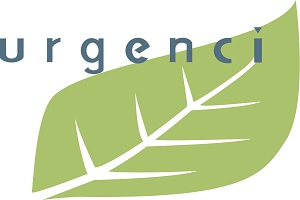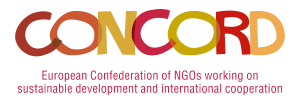
Start date and end date of the Action: 1 May – 31 December 2015
“Community-supported agriculture (CSA) is a direct partnership between a group of consumers and producer(s) whereby the risks, responsibilities and rewards of farming activities are shared through long-term agreements. Generally operating on a small and local scale, CSA aims at providing quality food produced in an agroecological way.”
This is the common definition of what Community-Supported Agriculture is in Europe drafted by the Research Group within this project. CSA is a proactive response to concerns about resilience and transparency in the food system and an important step for consumers wishing to reclaim sovereignty and control of the way their food is grown, processed and traded.
The Common Ground for Community-Supported Agriculture in Europe project strengthened the European CSA movement and established what is common to all the CSA initiatives in Europe, with a twofold purpose:
- Setting up the European CSA Declaration-writing process, using a rigorous participatory constructive methodology, to reinforce both the European CSA platform as well as the local and national networks, and foster critical discussions on our values as well as and how to share them widely.
- Implementing a participatory action-research process to gain deeper insight into the social and economic impacts of CSA on European society, crafting a European CSA Overview with the CSA Research Group and launching a wide census among the European CSAs.
During 2015, two European meetings in Milan and Berlin with altogether 41 participants from 15 countries were held to draft the core values and objectives for preparing the European Declaration. National consultations in 13 countries (UK, Italy, Greece, Czech Republic, Germany, Poland, Austria, Basque country, Sweden, Switzerland, Portugal, Hungary, Romania) were held with CSA communities, bringing together 400 activists from all regions, to stimulate debate and get constructive feedback.
In many countries, the national consultation was the first national CSA event ever (Poland, Czech Republic, Sweden) and especially for some countries (Greece, Portugal), it enabled people from several regions to meet at last and exchange about their activities. It was also a moment to create a national CSA network (Ireland) and of course support European networking. In the beginning of 2016, the national consultations will be continued in France and Belgium. The aim to have a consolidated draft Declaration for the Third European CSA Meeting taking place in Ostrava (CZ) 16-18 September 2016 was successfully met.
To draft the common definition of CSA in Europe, design a participatory action research programme for collection of data from all CSAs and produce the first “scientifically proven” European CSA Overview, the CSA Research Group met in the Black Forest, Germany, in August 2015 gathering 28 participants from 21 European countries. The research included a questionnaire investigating CSA from different angles, such as number of initiatives and people fed, characteristics regarding organisation and financing, agroecological practices, governance, etc. Online solutions were applied to conduct the survey, which had been translated into all native languages. The results were collected by mid-November and the information on the country level was used – together with the general knowledge of each country representative – to compile country reports. 446 responses from 25 countries in Europe were received, and 2 countries additionally gathered data without census questionnaire, so 27 European countries participated in the effort. According to our estimate, 6,292 CSAs were operating in Europe in 2015, producing food for almost one million (969,255) eaters. Citizens, policy makers and activists alike will benefit from insights of this powerful emerging movement thanks to the comprehensive research report “European CSA Overview” compiling all the information.
The plan is to publish this important document in a printed version so that it can provide information and inspiration to the CSA community as well as interested parties from civil society, policy making and academia. In a long term, the results are a better scientific knowledge of CSA’s strengths and weaknesses and its dissemination; thorough evaluation of innovative democratic procedures among CSA groups; and documentation of the CSA’s impacts/benefits on local communities and on the European societies contributing to CSA advocacy at local, national and EU level.
This project was a real success and gave a significant boost to the many CSA activists from all over Europe who actively took part in it. As we had hoped, it provided the opportunity to the growing CSA community to meet and gave us the means to structure a Shared Vision-building process in 2015 for the future. Taking action in our community for a decent life for all and a greater respect of the land that feeds us is what CSA is about. We hope our experience within the EYD2015 framework will further inspire more Europeans to engage and become involved in development and solidarity throughout Europe. We are connecting with each other, with the farmers in our communities and with the living soil beneath our feet: this is our Common Ground.
